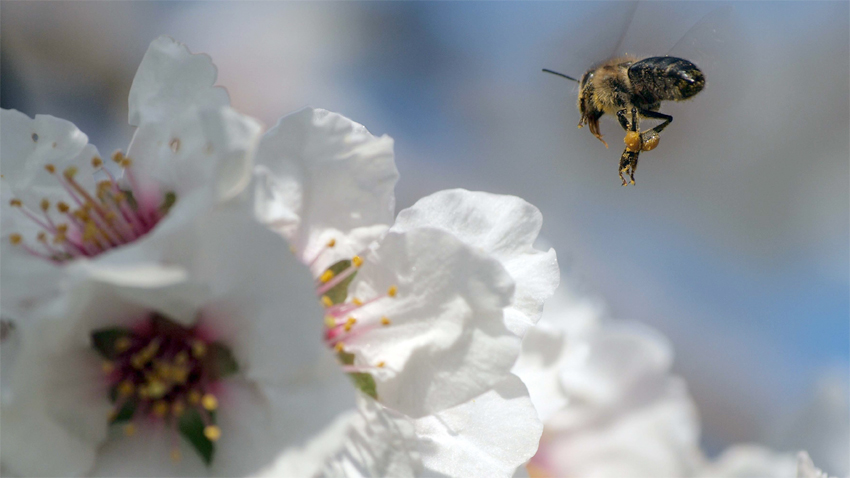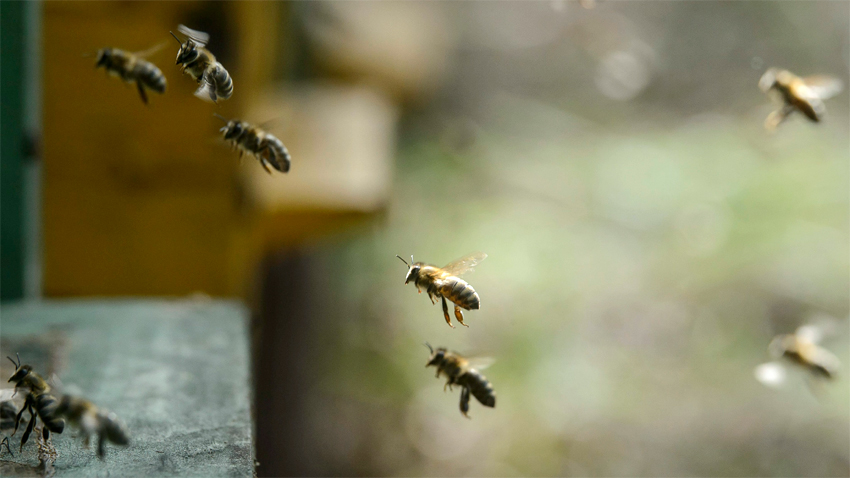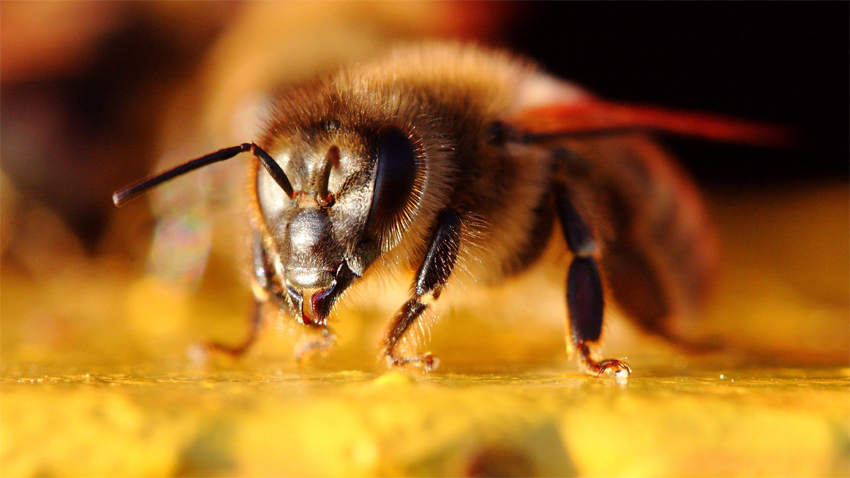Bees are one of the wonders of nature. Their home – the hive – is a smooth-running machine, in which everyone knows their place and obligations. The hierarchy is rigorous and is respected by all. The hexagonal cells that make up the honeycomb are made in such a way as to contain a maximum amount of honey with a minimum outlay of wax for their construction.
In his study of the way bees communicate, German professor Karl Ritter von Frisch, holder of a Nobel Prize in Physiology and Medicine reaches the conclusion that scout bees convey information to forager bees about where feeding grounds are to be found by dancing in circles and in 8s. The slower the dance, the further away the grounds.

Engineer Lyudmil Savov has been keeping bees since 1984. To begin with, he studied the life and habits of bees theoretically, but now he has over 200 beehives. He is a member of the board of the United Bulgarian Apiculture Union. We talk to engineer Savov about the importance of bees to humans and to nature:

“These flying pharmacists, as Russian researcher Yorish calls them, give us food and health with the products they manufacture. Apiculture products are used more and more widely in preventive medicine. In Japan, China, Spain bees are used for a modern and effective kind of treatment – api-acupuncture. In Bulgaria this method is still in its infancy. If the benefits humans derive from bees are 100 percent, then apiculture products account for no more than 1.5 percent of them. The remaining 98 percent and over are the result of the massive amount of pollination they perform which directly affects one third of the food we consume. Pollination is also important to agriculture, to the ecosystems, so nature may reproduce. That is why bees play such an important role in the environmental balance of the planet.”

Sadly, the bee population is under threat globally. What are the main reasons for this phenomenon? Engineer Lyudmil Savov:
“Global environmental pollution on the one hand, and on the other – the drastic decline in bees’ basic food worldwide, as well as climate change. Modern pesticides and chemicals are being used on more and more areas of crops. They destroy weeds, but weeds are food to bees when they are in bloom. And that brings the nutrient balance down drastically. If we take a look at the climate – until 20-30 years ago we had four clearly defined seasons. Now winters are milder, with less precipitation. Summers are hot and dry. This is the kind of environment bees have to survive in. Neonicotinoids are the latest fad in agriculture. There are 14 different neonicotinoids, obtained from nicotinic acid which are used as crop seed pesticides. But they also deter bees which collect the nectar, pollen and water they need for the brood from these plants. In very small amounts the harmful substances find their way into the apiculture products. The honeybee colonies are not poisoned right away, but in a few months’ time, especiallly in winter, when this is the food that is eaten, the colony wanes and may die out."

"There is a film – a British-German coproduction – which looks into the reasons why bees are dying off. Modern radars are used to track their movement. Food is left 500 metres from the colony and the flights are monitored. It has been established that when neonicotinoids are not applied bees fly from the food source to the hive in a straight line. When negligible amounts are used, i.e. amounts that are actually applied in real life, they have difficulty reaching the hive. Some lose their way and this brings down the population and bee colonies may vanish and die off.”

Engineer Savov explains what can be done to remedy this situation:
“Latest studies have shown that neonicotinoids can be replaced with pheromones which are not a danger to bees. The future of modern agriculture lies in this kind of pesticides. Another effective measure for the survival of bees is new plantations, most of all of melliferous trees which enhance the food supply. But preventive veterinary medicine must also play its part in safeguarding bees’ health and stop using harmful chemicals to combat parasitic diseases. Being the main culprits responsible for the decline in the health of bees, we humans must rectify our actions and preserve this invaluable biological species,” concludes engineer Lyudmil Savov.

English version: Milena Daynova